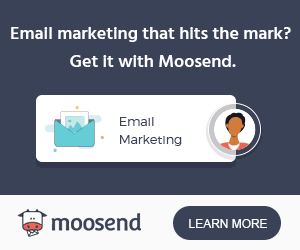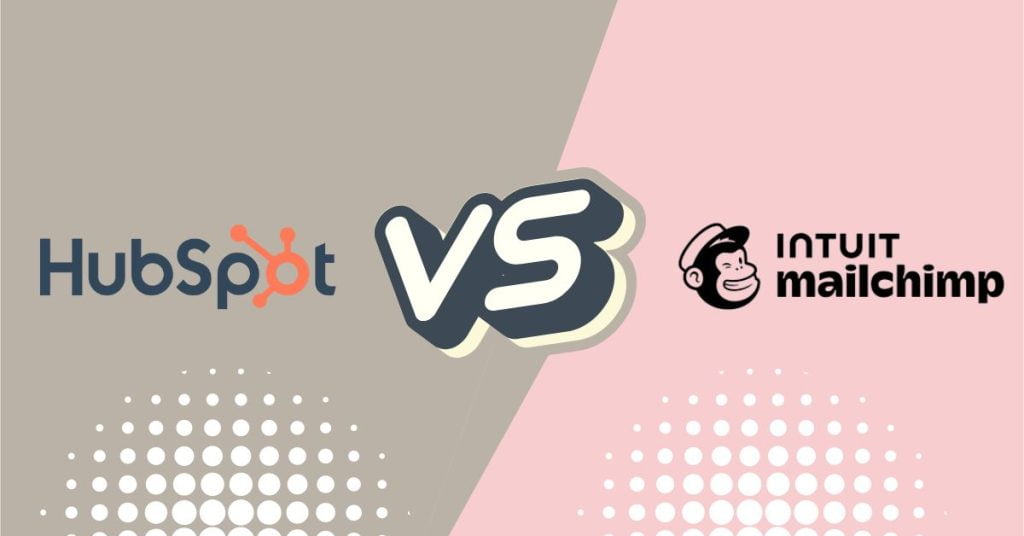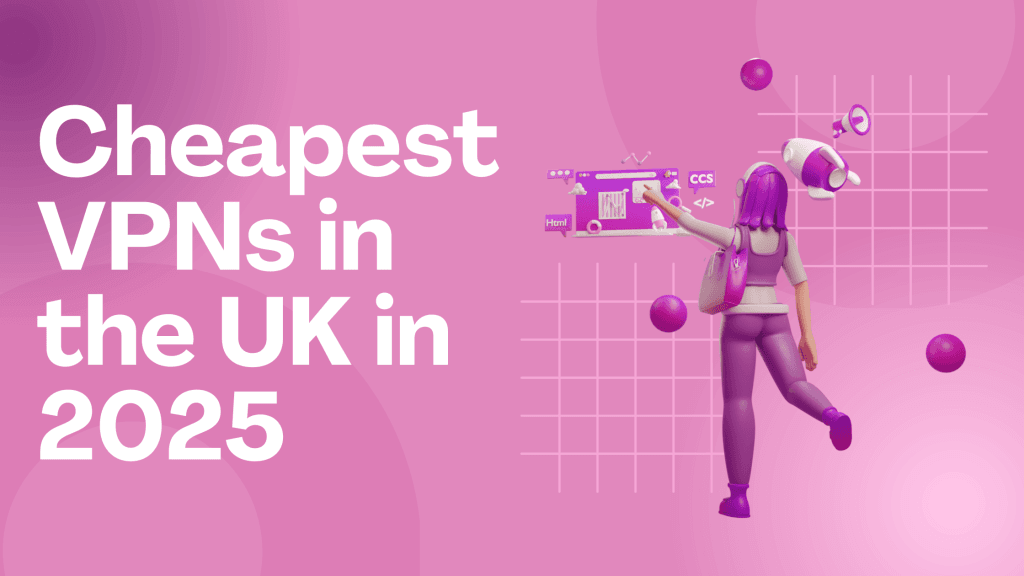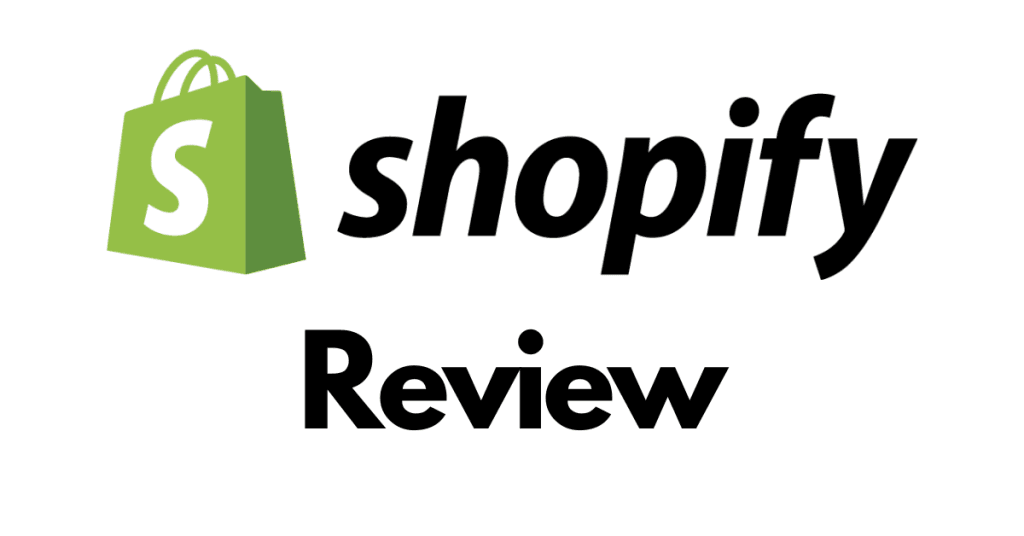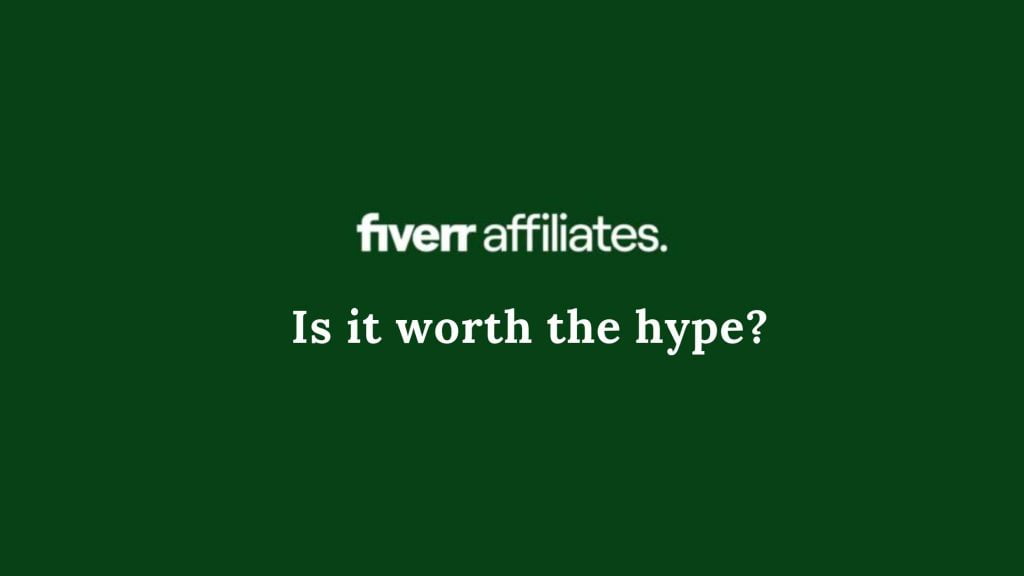Selecting the right marketing automation platform is crucial for businesses to optimize their marketing campaigns, integrate sales efforts, keep in touch with subscribers and achieve successful and streamlined inbound marketing strategies. Whether you have an ecommerce business or not, keeping in touch with those that use your service is vital.
HubSpot vs Mailchimp – Which is better?
HubSpot and MailChimp are both prominent players in the market, offering powerful automation features and a massive array of capabilities that’ll make your email marketing quicker and more efficient.
In this comparison, we’ll explore how HubSpot and MailChimp fare in various aspects of marketing and sales, including inbound marketing, optimizing campaigns, integration capabilities, and more.
Pricing
When it comes to pricing, MailChimp offers various plans, including a free plan for businesses with smaller subscriber lists.
HubSpot however do things a little differently (and better we think). Their Free Plan gets your access to the free tools across their portfolio of products, not just email marketing. So let’s compare what you can get for free from both for marketing alone –

Free Tools Plan
Free
No Credit Card Required.
What you get –
✅ Up to 1,000,000 contacts (seriously!) but you’re still of course limited to the monthly send limit
✅ 2,000 email sends per calendar month, with HubSpot branding
✅ 1 automated email action
✅ 1 shared inbox
✅ Team email
✅ HubSpot mobile app access (includes card scanning, caller ID and more)
✅ Email reply tracking
✅ List segmentation – 5 active lists & 1,000 static lists
✅ Up to 3 reporting dashboards
✅ Standard web analytics dashboard
✅ Live chat (with HubSpot branding)

Free Plan
Free
No Credit Card Required.
What you get –
✅ Up to 500 contacts
✅ 1,000 email sends per calendar month, with Mailchimp branding
✅ 1 Audience
✅ 300+ Integrations
✅ Basic Reporting & Analytics
✅ Forms and Landing Pages
✅ Marketing calendar
✅ Surveys
So, straight off the bat, HubSpot gives you considerbaly more in their free marketing plan, and that’s without even taking into consideration the other parts of the their free tools.
Now, let’s take a look at the cheapest plans for say, 501 contacts

Starter Plan
$18 / month (Annual commitment)
$20 / Month (Monthly commitment)
What you get –
Everything in Free plus:
✅ Up to 15,000,000 non-marketing contacts in your database
✅ 1,000 marketing contacts
✅ 5,000 email sends per calendar month with no HubSpot branding
✅ Up to 10 automated actions
✅ Facebook Messenger integration with no HubSpot branding
✅ HubSpot mobile app access (includes card scanning, caller ID and more)
✅ Email reply tracking
✅ List segmentation – 25 active lists & 1,000 static lists
✅ Up to 10 reporting dashboards
✅ Forms without HubSpot branding
✅ Landing Pages without HubSpot branding
✅ Email health insights
✅ Payments
✅ Email and in-app chat support

Essentials Plan
$26.50 / month
What you get –
✅ Everything in Free
✅ Up to 1,500 contacts
✅ 15,000 Monthly Sends
✅ 3 Audiences
✅ Basic Reporting & Analytics
✅ Forms and Landing Pages
Deciding who wins here when just considering the marketing packages in isolation is very difficult as either plan might suit certain people and businesses better than others.
However, it’s worth noting what else you get with the HubSpot plan, including their full free CRM package and more. See our full article on HubSpot here.
Inbound Marketing Strategies
HubSpot stands out as an all-in-one inbound marketing software, providing you with an easy-to-use platform to execute your marketing strategies effectively.
It offers customizable websites, optimized content marketing, lead-generation tools, and email templates to engage potential customers and drive conversions.
MailChimp, while primarily focused on email marketing, also provides powerful automation and an email marketing platform suitable for optimizing marketing campaigns.
Integration Capabilities
When it comes to integrating with other tools and platforms, both platforms are higher capable. However, HubSpot really excels here with over 1,000 native and seemless integrations including popular applications like Zapier, Google Analytics, Magento, and Salesforce and more.
It’s worth noting that you can integrate Mailchimp with most applications, it just takes a bit of technical know-how, like using Zapier for example.
Automation
Both HubSpot and MailChimp offer powerful automation features to streamline marketing processes.
HubSpot’s automation software allows you to create customized workflows, automate marketing campaigns, and personalize communication with leads and customers.
MailChimp’s automation capabilities are focused primarily on email marketing, allowing you to set up automated email sequences and drip campaigns.
Analytics and Reporting
HubSpot provides robust dashboards and reporting tools that offer comprehensive insights into marketing performance, allowing you to track the effectiveness of your marketing campaigns, measure ROI, and make data-driven decisions.
MailChimp also provides analytics and reporting features, but HubSpot’s integration with Google Analytics and its built-in analytics capabilities give it an edge in terms of detailed reporting and analysis.
CRM Integration
HubSpot’s marketing automation platform includes a completely free CRM software that seamlessly integrates marketing and sales efforts.
This integration allows for better lead management, onboarding of new customers, and nurturing potential customers throughout the marketing lifecycle.
MailChimp, however, does not offer a comprehensive CRM integration as part of its platform.
Email Deliverability
Both HubSpot and MailChimp prioritize email deliverability to ensure that marketing messages reach the intended recipients’ inboxes.
HubSpot’s robust infrastructure and advanced email deliverability practices contribute to high deliverability rates, reducing the chances of emails being marked as spam.
MailChimp also emphasizes email deliverability and provides tools and guidelines to optimize email delivery. In our experience though, it’s usually about 70/30 delivered to spam with MailChimp.
Customer Support
HubSpot provides excellent customer support, offering a variety of resources, including a knowledge base, community forums, and a dedicated support team. Their support is available through multiple channels, ensuring that users can get assistance when needed.
MailChimp also offers customer support through various channels, including email and live chat.
Conclusion
So to conclude the HubSpot vs Mailchimp debate. HubSpot and MailChimp are both powerful marketing platforms with their own unique strengths. While MailChimp has been in the email marketing space for a very long time and offers a robust platform suitable for optimizing email campaigns, HubSpot stands out as a comprehensive marketing automation platform that seamlessly integrates with various tools, optimizes inbound marketing strategies, provides powerful automation features, and plus, it offers a free CRM.
It’s a HubSpot win for us.

